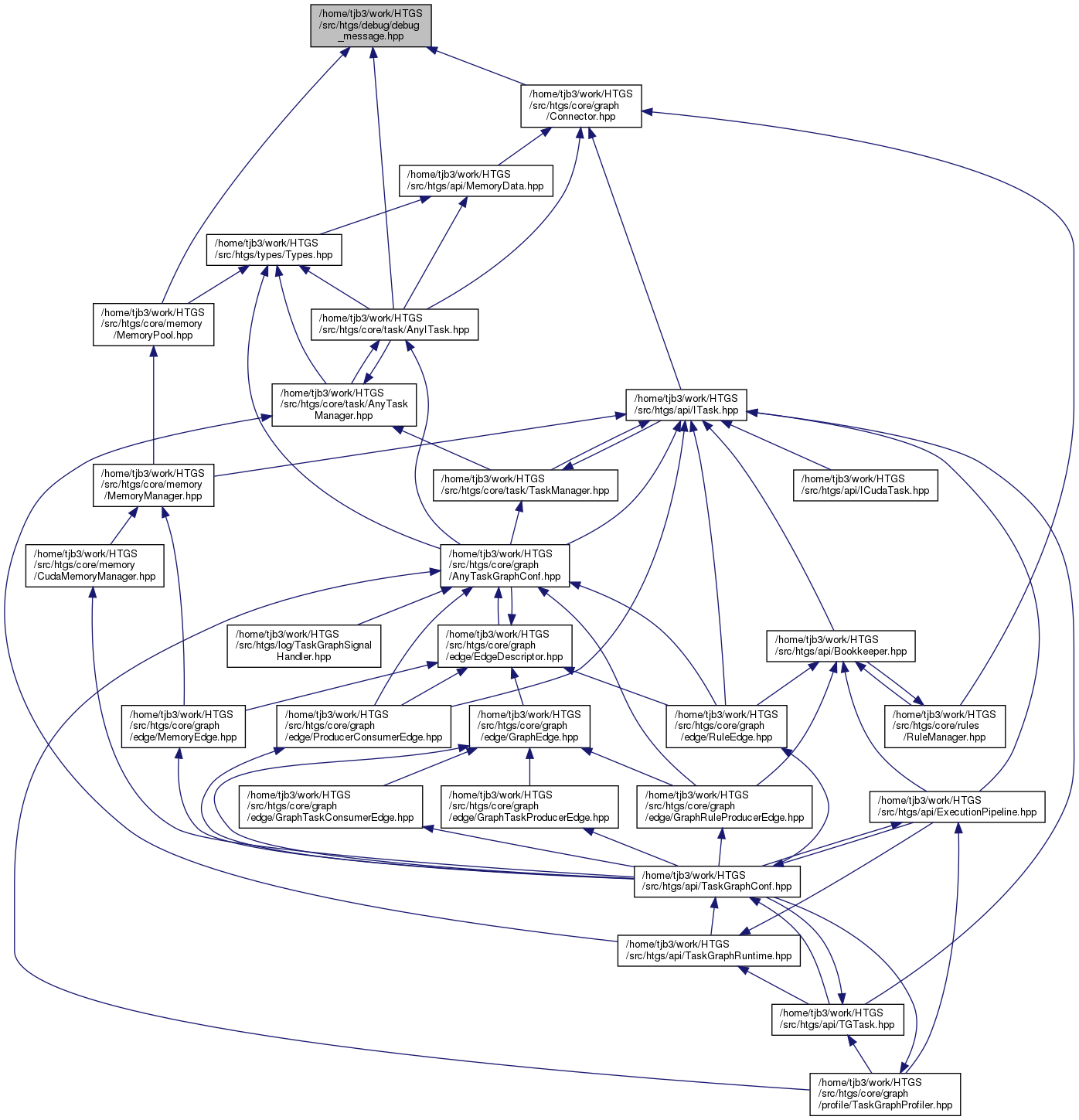 |
HTGS
v2.0
The Hybrid Task Graph Scheduler
|
 |
HTGS
v2.0
The Hybrid Task Graph Scheduler
|
Provides functionality for debug messaging. More...
#include <iosfwd>#include <iostream>
Go to the source code of this file.
Classes | |
| struct | htgs_dbglog |
| Debug logging structure for processing various types of arguments for std::cerr. More... | |
Macros | |
| #define | HTGS_ASSERT(condition, message) |
| Prints a more meaningful assertion message and terminates if the condition fails. More... | |
| #define | HTGS_VERBOSE 1 |
| Defines verbose mode. | |
| #define | HTGS_DEBUG_MSG_LEVEL(msg, level) |
| Prints a debug message to std::cerr with the specified level. More... | |
| #define | HTGS_DEBUG(msg) HTGS_DEBUG_MSG_LEVEL(msg, 0) |
| Prints a debug message to std::cerr with standard level If DEBUG_FLAG is not defined, this equates to a no op Each message includes the file and line number for where the debug is called. More... | |
| #define | HTGS_DEBUG_VERBOSE(msg) HTGS_DEBUG_MSG_LEVEL(msg, HTGS_VERBOSE) |
| Prints a debug message to std:cerr with VERBOSE level. More... | |
| #define | HTGS_DEBUG_LEVEL 0 |
| Defines the debug level for printing debug messages. | |
| #define | HTGS_DEBUG_ENABLED 0 |
| Defines whether debug is enabled or disabled. | |
Provides functionality for debug messaging.
| #define HTGS_ASSERT | ( | condition, | |
| message | |||
| ) |
Prints a more meaningful assertion message and terminates if the condition fails.
| condition | the condition to check the message to output |
| #define HTGS_DEBUG | ( | msg | ) | HTGS_DEBUG_MSG_LEVEL(msg, 0) |
Prints a debug message to std::cerr with standard level If DEBUG_FLAG is not defined, this equates to a no op Each message includes the file and line number for where the debug is called.
| msg | the message |
| #define HTGS_DEBUG_MSG_LEVEL | ( | msg, | |
| level | |||
| ) |
Prints a debug message to std::cerr with the specified level.
If the specified message level is greater than defined DEBUG_LEVEL or if DEBUG_FLAG is not defined, then this equates to a no op. Each message includes the file and line number for where the debug is called
| msg | the message |
| level | the message level |
| #define HTGS_DEBUG_VERBOSE | ( | msg | ) | HTGS_DEBUG_MSG_LEVEL(msg, HTGS_VERBOSE) |
Prints a debug message to std:cerr with VERBOSE level.
If DEBUG_FLAG is not defined or the DEBUG_LEVEL is not VERBOSE, then this equates to a no op Each message includes the file and line number for where the debug is called
| msg | the message |